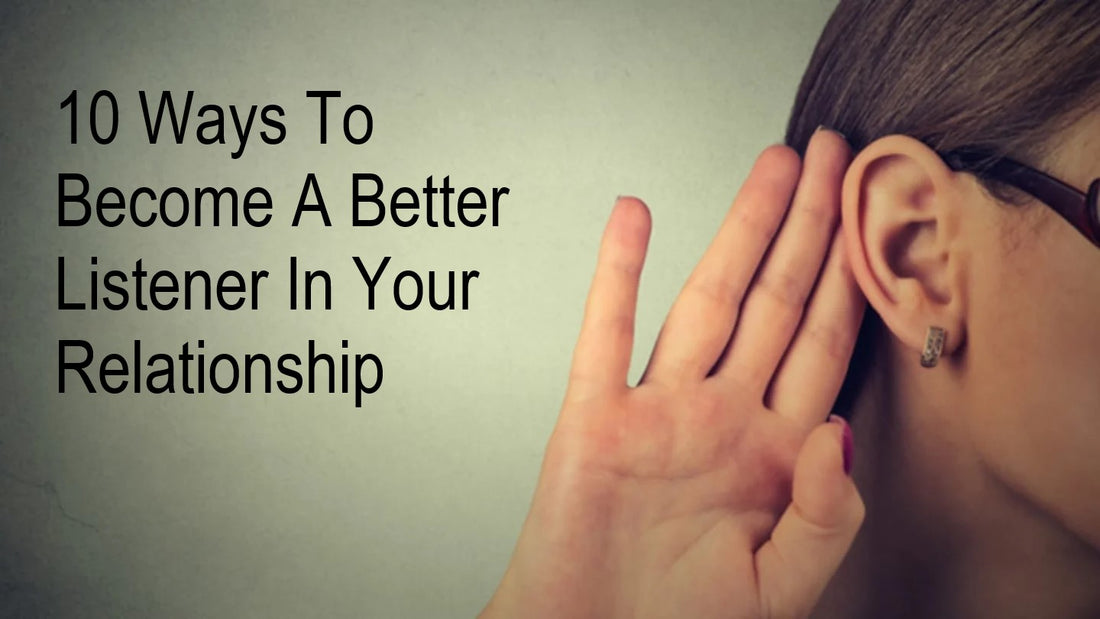Effective communication is the foundation of any successful relationship. While speaking and expressing oneself is important, listening plays an equally crucial role. Listening not only shows respect and empathy towards your partner, but it also helps to build trust and understanding. In this blog post, we will explore some practical tips on how to listen better in a relationship.
1. Give your undivided attention
When your partner is speaking, make a conscious effort to give them your full attention. Put away distractions such as your phone or the television, and maintain eye contact. By doing so, you are showing that you value what they have to say and that their words matter to you.
2. Practice active listening
Active listening involves fully engaging with your partner's words and non-verbal cues. Show that you are actively listening by nodding, maintaining an open posture, and providing verbal cues such as "I see" or "Go on." This encourages your partner to continue sharing and helps you to better understand their perspective.
3. Avoid interrupting
Interrupting your partner while they are speaking can be frustrating and dismissive. Allow them to finish speaking before responding. This not only shows respect but also allows for a more meaningful and productive conversation.
4. Reflect and clarify
After your partner has finished speaking, take a moment to reflect on what they have said. Paraphrase their words to ensure that you have understood correctly. This not only demonstrates that you are actively listening but also helps to avoid misunderstandings.
5. Control your emotions
Listening can sometimes be challenging, especially when discussing sensitive topics or during conflicts. It's important to manage your emotions and avoid becoming defensive or reactive. Take deep breaths, stay calm, and remind yourself to listen with an open mind.
6. Show empathy and validation
Empathy is a powerful tool in effective listening. Try to understand your partner's emotions and validate their feelings. Use phrases like "I can understand why you feel that way" or "That must have been difficult for you." This shows that you care and are willing to support them.
7. Be patient
Listening takes time and patience. Avoid rushing the conversation or jumping to conclusions. Give your partner the space they need to express themselves fully. Remember, it's not about finding an immediate solution but about creating a safe and open environment for communication.
8. Seek clarification
If you are unsure about something your partner said, don't hesitate to ask for clarification. It's better to seek understanding than to make assumptions. Asking questions shows that you are genuinely interested in their perspective and want to ensure clear communication.
9. Practice non-judgment
Listening without judgment is essential for effective communication. Avoid criticising or blaming your partner for their thoughts or feelings. Instead, focus on understanding their point of view and finding common ground.
10. Practice active feedback
After your partner has shared their thoughts, provide them with feedback to show that you have listened and understood. This can be as simple as summarizing their main points or expressing gratitude for their openness. Active feedback reinforces the connection and encourages further communication.
Improving your listening skills takes time and effort, but the benefits it brings to your relationship are invaluable. By implementing these tips, you can create a stronger bond with your partner, enhance understanding, and foster a healthier and more fulfilling relationship.
Further Information & Help:
We hope you have found this blog useful. However, if you would like some help and guidance with your relationship, further information can be found here or you can contact us here.
Suggested Reading:

How to Listen: Discover the Hidden Key to Better Communication
If you want to be heard, you need to know how to listen.
Communication isn’t all about what you say. It’s about what you hear, what you notice, and how you respond. In short: it’s about how you listen. And despite leaders spending eighty-three percent of their day listening, only two percent of them have ever been trained in how to listen effectively.
At a time when we are more technologically linked than ever, our conversations have never been more distracted and disconnected—because most don’t know how to truly listen.
The result? You constantly fight to be “heard” over all the noise and distraction. You feel frustrated, confused, ignored, and feel like no one is paying attention. You are drained and tired of repeating yourself. Work conversations take longer than necessary because most people only listen to fourteen percent of what the speaker thinks and means.
In How to Listen, Oscar Trimboli, host of the Apple-award-winning podcast Deep Listening, shows you how to unlock your listening superpowers. Trimboli shares practical and pragmatic insights to help you notice when you aren’t listening—and what to do about it.
When you understand the art and science of listening, you’ll master the missing half of communication—and create a more powerful impact in your workplace and beyond.
Follow the link to purchase this book from Amazon: https://amzn.eu/d/chFLShi





